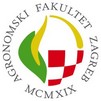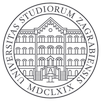Delivering graduates to meet the challenges of the
sustainable development goals (SDGs):
embedding the development of ethical and sustainable values in the curriculum
13 & 14 June, 2017
held at the Faculty of Agriculture, University of Zagreb, Croatia
See the programme and presentations
Colloquium Focus
On September 25th 2015, the UN General Assembly adopted the Agenda for Sustainable Development - a set of goals to end poverty, protect the planet, and ensure prosperity for all. The achievement of these goals depends in part on the education of our graduates, who will become the leaders in addressing these challenges. We invite you to develop ideas for the enhancement or even the re-design of your teaching and your students learning. Our focus will be to consider how to embed ethical and sustainable values in the higher education curriculum in the life sciences. We invite you to share your views and experience and learn from others, whilst at the same time enjoying the increasingly popular capital Zagreb.
Colloquium Background
Education is key to the global integrated framework of sustainable development goals (SDGs). Education is at the heart of our efforts both to adapt to change and to transform the world within which we live. A quality based education is a necessity for learning throughout life in a complex and rapidly changing world. There is growing international recognition of Education for Sustainable Development (ESD) as an integral element of quality education and a key enabler for sustainable development. Sustainable development goal No 4 proposes that by 2030, we have to ensure that all learners acquire the knowledge and skills needed to promote sustainable development: including, among others, education for sustainable development and sustainable lifestyles, human rights, gender equality, promotion of a culture of peace and non-violence, global citizenship and appreciation of cultural diversity and of culture's contribution to sustainable development.
The imperatives of sustainability point not only to new course contents, but also to new ways of teaching that content. Education for sustainable development aims to support young people in their own development. In this process questions related to ethics and the meaning of life, as well as how we, with all our technical possibilities and solutions, can meet the future's challenges with energy and resource saving constructions, are also part of a holistic approach. Different subjects contribute too, such as science for discovering, identifying and analyzing relations, social subjects for looking at the background to situations and events and identifying the know-how necessary for change and development, and language and art for creative expression and communication.
Some would argue that it is difficult to change university students' ethical values as they are already well embedded through their cultural background before entering university. However, it is the responsibility of university education to challenge students to reflect on their preconceptions through their interaction with their lecturers and peers. This Colloquium sets out to explore interventions in the curriculum which will challenge ethical standpoints taken by the students and the lecturers.
No special methods have been designed or created for the teaching and learning of sustainable development. However, some methods are much better suited to teaching of sustainable development than others. Typically those methods are focused on the learning process. Therefore the goal of the colloquium is to discuss with others how one might use and integrate various teaching methods in the teaching to meet the challenges of sustainable development goals though – embedding the development of sustainable and ethical values in the curriculum.
Colloquium Aims
The aim of the ICA-EDU Colloquium 2017 is centred on three themes:
• the challenge for life science universities in addressing the SDGs
• the teaching of ethics - core course and embedding throughout the curriculum
• the teaching of sustainable development – core course and embedding throughout the curriculum: environmental sustainability, economic sustainability and socio-political sustainability
Your experience in the integration of various methods in teaching will support our discussion. Of course if you and your students already have such experiences of embedding of ethical and sustainable values in your courses it will be great to share that experience in the Colloquium.
Expected Outcomes
• Increased awareness of the need for the integration of sustainable development education in the curriculum.
• Definition of learning outcomes to be achieved by the learner in respect of sustainable development and ethical decision making
• Contribute to a dialogue about how skills, commitment and action competence for sustainable development can be developed among students.
• Identification of the staff development needs to support the teaching of sustainability and ethical values in the curriculum
• Based on the outcome of these discussions a summary of possible interventions to effectively embed ethical and sustainable values in our students learning will be prepared and circulate
Target Audience
Life sciences' academic staff, degree programme coordinators, students, academic administrators, and policy makers.
Colloquium Partner
|
|
The I.S.L.E - Association for Innovation in the Teaching of Sustainable Development in Life Sciences, in Europe |




